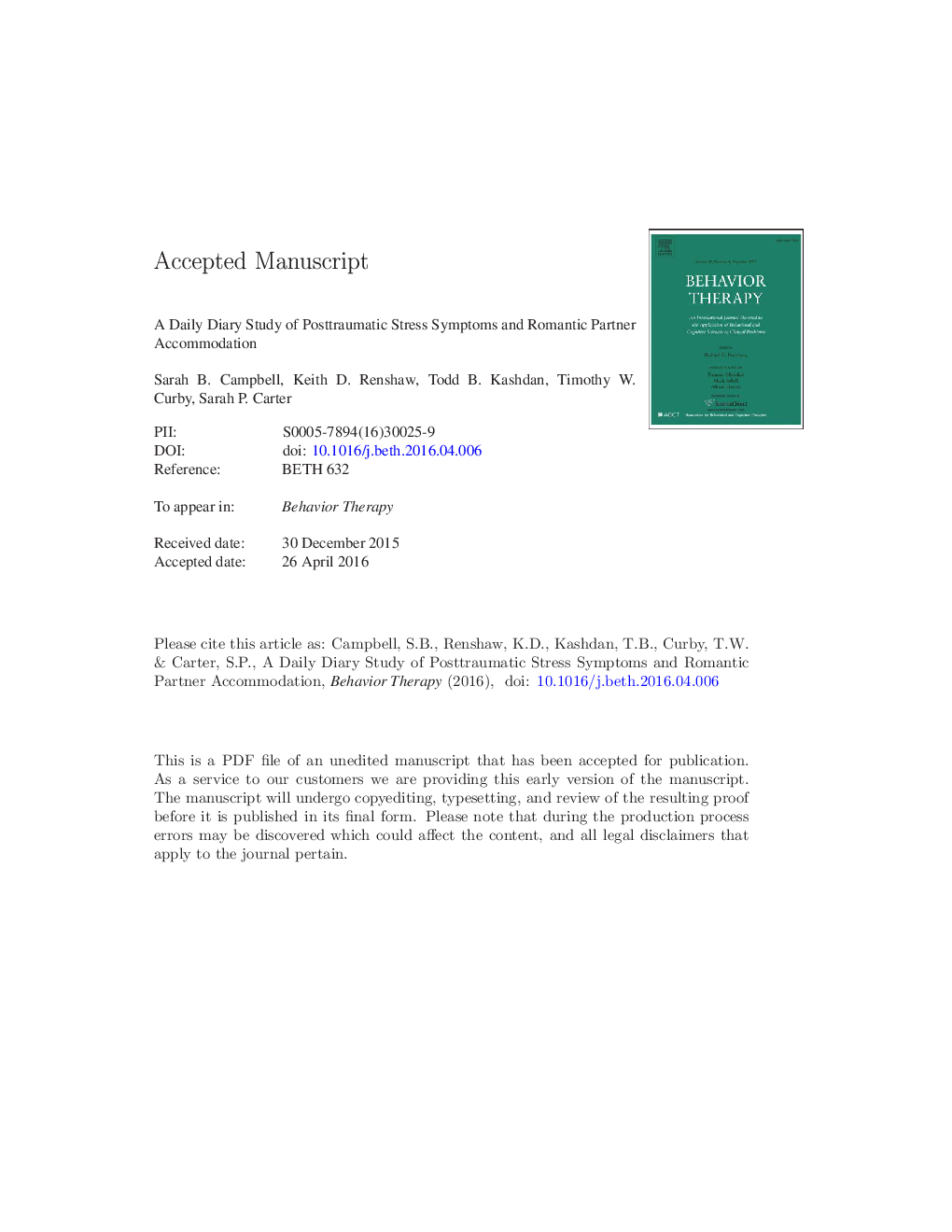ترجمه فارسی عنوان مقاله
یک مطالعه روزانه علائم استرس پس از سانحه و اقامت شریک زندگی رمانتیک
عنوان انگلیسی
A Daily Diary Study of Posttraumatic Stress Symptoms and Romantic Partner Accommodation
| کد مقاله | سال انتشار | تعداد صفحات مقاله انگلیسی |
|---|---|---|
| 131892 | 2017 | 37 صفحه PDF |
منبع

Publisher : Elsevier - Science Direct (الزویر - ساینس دایرکت)
Journal : Behavior Therapy, Volume 48, Issue 2, March 2017, Pages 222-234

